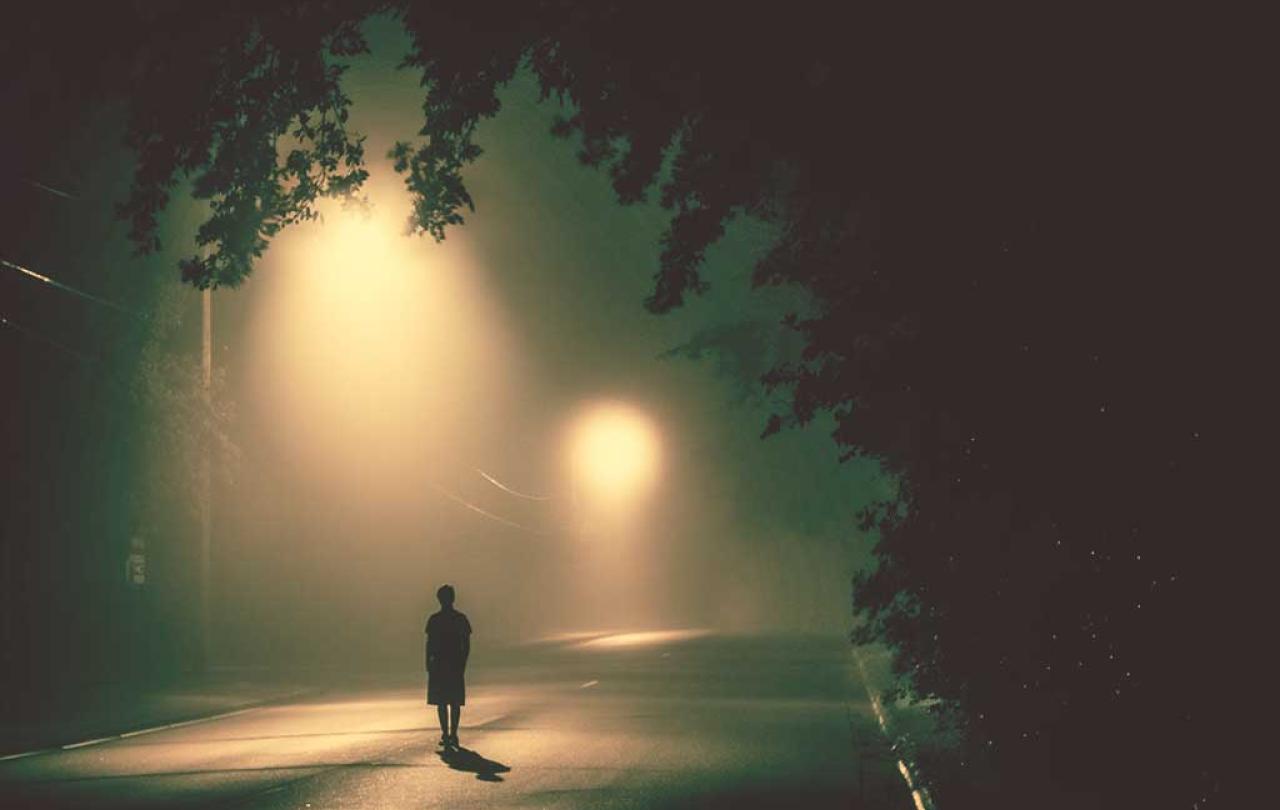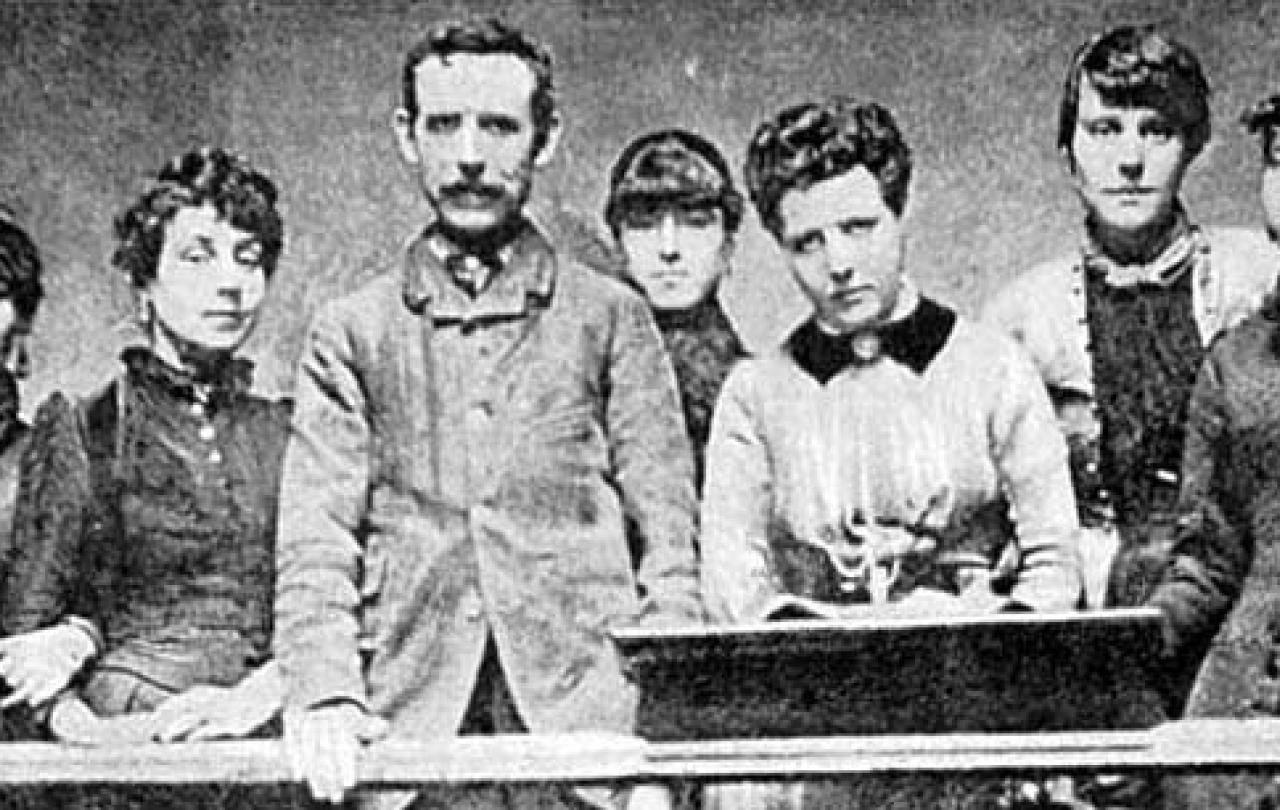
Loneliness kills. I’ve known that for a while. It dawned on me when, as an undergraduate, I first read the anthropological studies of the so-called ‘voodoo death curse’. An admittedly politically incorrect name for a horrifying phenomenon that has haunted me ever since. The studies, reported in the early twentieth century, attempted to account for the highly effective way in which shaman in tribal cultures were able to pronounce death on aberrant members of their community. Often within days of coming under the curse, the hexed individual was dead. It looked like magic.
Psychologists studying anxiety became interested in this phenomenon as an illustration of the connection between social stress and physical health. On closer examination, they noted that those on the receiving end of a death curse, not only came under the opprobrium of a powerful spiritual authority but were consequently entirely isolated from the community that gave them their identity. The moment the curse was decreed they became a non-person. They ceased to exist in the eyes of the collective. They became a ghoul, a wraith, an abomination to their people. They experienced a social exclusion so absolute and catastrophic that the stress of it killed them. Physical death swiftly followed social death.
When we fall foul of the charismatic leader of a workplace... we may for a moment shiver in the chill breeze of the death curse.
But the death curse is not confined to stone age tribes and agrarian collectives. It is a ubiquitous artefact of human social life. In subtly disguised form it continues to stalk the industrialised societies of the West. We see it in any social situation that terminally frustrates our hardwired biological need to belong. When we are cast out of employment through redundancy, retirement, or sickness. When a social faux pas leaves us persona non grata. When our social media presence is more of a toenail than a footprint. When we fall foul of the charismatic leader of a workplace, a neighbourhood, a family, a church. We may for a moment shiver in the chill breeze of the death curse. We wonder briefly if the silence and the cold shoulders will kill us.
We don’t often think about the all-too evident connection between belonging, stress and health- but we should, because social connectedness is the primary way we as a species have made it this far. Most of us are familiar with the physiological responses to acute stress. There are only a few of them. It’s like a multiple choice test, take your pick: a) fight, b) flight, c) freeze, d) faint, or e) some bespoke combo of all of the above. We probably also have some recognition that those of us living in information economies tend to spend too much time in these stressed states of mind. They are designed for short-term threats (like predators), not long-term projects and serial deadlines. The cortisol coursing through our veins designed to deliver us from danger now stops us sleeping at night, and lurks behind all the major killers of our culture: cancer, heart disease, and depression.
But before we get to all that stressed-out running and punching and standing still like startled rabbits, there is a more common everyday way that human beings deal with stress. Our primary way of navigating a challenging and threatening world is our equally hardwired ability to reach out to others- the social engagement system. This tend-and-befriend response is present in many species, but it reaches a particular level of genius in ours. Our capacity to form groups that can coordinate action through a sense of unified purpose is what allowed our ancestors to take down woolly mammoths and survive ice ages. Our principal strength comes not from our ability to make fists, but to join hands.
To fall out of connection with others is an existential threat.
No wonder then, given our history as an eminently social species, that loneliness- the perceived shortfall between desired and actual social contact- is experienced as a menace to our survival. It once was, and still is. To fall out of connection with others is an existential threat. Clinical research has been reporting for decades that social support, or rather the lack of it, predicts and maintains pretty much every form of psychological distress we can bring to mind. In a small-scale way I repeat that finding with my own students every year. We annually distribute a 19-item well-being survey to several hundred university students. Most of it asks about the good stuff, happiness, quality of relationships, sense of purpose and so on. But one question asks them to rate, simply on a 1-10 scale, how lonely they are. Every time we run it on campus, this single lonely question predicts levels of depression, anxiety and stress, better than any other demographic.
So, it is good that loneliness is back in the news. Only last month the US Surgeon General, Vivek Murthy, issued a report on the devastating health impact of loneliness. It affects a large proportion of the population- he cites 50% in the US, but UK estimates tend to be more conservative. It is apparently as damaging to our health as smoking 15 cigarettes a day, and twice as risky as downing six alcoholic drinks daily. Public health officials are partial to measuring mortality in fags and booze. But Vivek Murthy did something very un-like a public health official: he spoke about his own loneliness. How his very success in office had severed ties with friends and family, leaving him isolated, lonely and having to learn to re-connect. He proposes six pillars for addressing the societal scourge of loneliness, but as yet no government funding has been allocated to the initiative.
It is when we give to others that we know we are known- we matter.
When the experts are asked what we can do about loneliness they tend to advocate a multi-level approach. As individuals, we should Get Out. If we are lonely there are things we can do about it. Volunteering, exercise, singing, therapy, reconnecting with old friends, Counter-intuitively, we are more likely to benefit from activities in which we give something, in which we care or contribute. It is when we give to others that we know we are known- we matter.
As groups we should Look Out. Not everybody is able to overcome the barriers to social contact. Some people through physical or mental disability need others to look out for them. I witnessed a heart-warming example of this recently. There is a notorious character who lives locally. He dresses in black, has wild hair, walks with a limp, and speaks in grunts. He’s harmless, but he scares children. I don’t know what trauma or substance reduced him to this state, but he staggers past us twice a day on the way to his allotment. A few weeks ago thieves broke into his shed and stole all his gardening tools. He was pitifully distressed. But within hours the entire neighbourhood had mobilised through social media, and equipped him with every trowel, fork and hoe, that could be spared. I can’t help feeling that there is something in us as people that wants to act kindly like this, and cultivating this instinct gives me hope that we as a society can beat back the spectre of loneliness.
Loneliness it seems may not be just a bug in our software, it may be encoded in our cultural firmware- part of its operating system.
Which leads us to the third level of action, we need to Sort Out the dehumanising trends of our culture that inevitably generate and enable the pandemic of loneliness. As Mother Teresa famously observed, loneliness is the price we pay for wealth in the West, it is our true poverty. There may be something inspiring about the ruggedly individualistic, materialistically motivated, hyper-competitive, ideal of success that presides over our culture. But the studies of psychological wellbeing unanimously conclude that every one of those motivating values leads to misery, distrust and isolation. Loneliness it seems may not be just a bug in our software, it may be encoded in our cultural firmware- part of its operating system. Perhaps that is why most government-led attempts to alleviate the problem (in the UK and US at least) smack of tokenism. As the old organisational mantra goes: our social system is perfectly designed to bring about the outcomes it produces. So, what do we need? Nothing much. Just a completely transformed society. If only there was one of those knocking around, somewhere.






